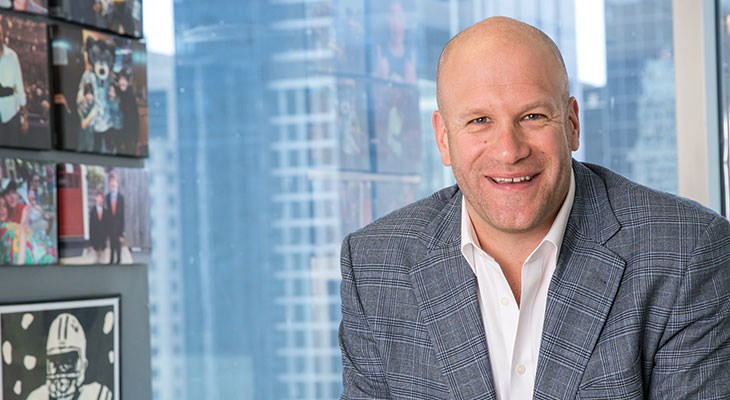Tom Gimbel has a hard time understanding the regret that some entrepreneurs feel about working with private equity investors to build their businesses.
“A lot of times people want to view private equity as just money, and I don't think that's right,” says Gimbel, founder and CEO of LaSalle Network. “They are your partners. You’re accountable to them, you have to answer to them, and it’s not your show entirely. You wouldn’t have what you built without the financial partners. To think that someone is going to give you money and not want to have a voice in it is very naive.”
To avoid regret, the answer, of course, is to do it yourself. It’s the route Gimbel took at the age of 26 when he took out a mortgage on his house and set out to create his own staffing and recruiting firm.
“You may not have the same financial resources, but it's your show,” Gimbel says. “You are the boss. Are there times where it’s lonely and you think about that? Absolutely. You have to be OK with whatever road you choose.”
Gimbel has found success with more than 150 employees and a company that has been profitable every year for more than two decades. But he’s still looking for his first acquisition.
Money matters
While Gimbel has yet to make a deal, he keeps a close eye on the world of dealmaking.
“It’s something I talk to my executive team about often,” Gimbel says. “Between my CFO and I, we’re looking at several deals a quarter and looking at the options that exist out there. I just haven’t seen any that provide us either the geographic expansion we’d want or the vertical that we don’t think we can do on our own.”
One reason Gimbel has been cautious when it comes to M&A activity is money.
“This probably isn’t a real popular opinion, but I do think that a lot of it comes down to whose money you’re playing with,” Gimbel says. “So for a company like mine, where I privately hold the company, I’m going to look for the right deal. If you’re playing with somebody else’s money as a CEO, maybe you’re more inclined to say, ‘We’ve got to grow revenue at all costs.’”
Instead, he says his company has time to build out verticals and for geographic expansion.
“There are companies that do deals for the sake of growth, and there are ones that do it for the strategic reasons to add people and/or lines of business,” he says. “I just happen to be on the latter, of looking for the right one.”
Eager buyers
As Gimbel looks at the current M&A market and speaks with customers and stakeholders across his industry, he sees a number of eager prospective buyers.
“There are a lot of people that want to do acquisitions,” Gimbel says. “The problem is that, in this market, companies are making money. And if the EBITDA number is higher, the multiple is going to be a little higher, and that equates to everybody looking for the same good deals. On the PE side, they’ve got money they have to spend and buy, and they’re churning hard to try to find the good ones.”
Dealmaking has also had an impact on LaSalle Network’s business, as clients are looking for financial and operational analysts who can help inform their strategic decisions.
“We're seeing companies say if that they can’t find deals at the right dollar amount, they’re hiring up,” Gimbel says. “Our sales recruiting practice has never been hotter because companies are saying, ‘We’re still going to build up our own sales team while we look for new deals.’”
Find your focus
As Gimbel continues to search for the right deal for LaSalle, he’ll also keep tabs on what other companies are doing.
“You want to know what’s going in the market and the multiples that are being paid,” Gimbel says. “The flip side to that is you’ve got to be very careful and not fall into the trap of being the person that spends too much of your time on nonrevenue-producing activities.”
He says that when you’re building and growing a company, you’ve got to be in the business.
“If you're so focused on deal flow and what’s going on that you don’t know what’s happening in your business, you may be building a company that’s not going to be that valuable,” he says. “And that can be a long-term problem.”




